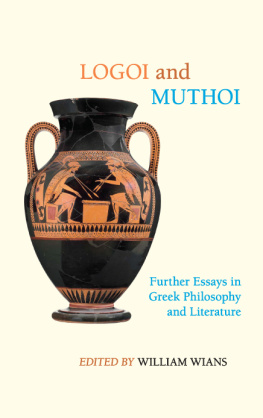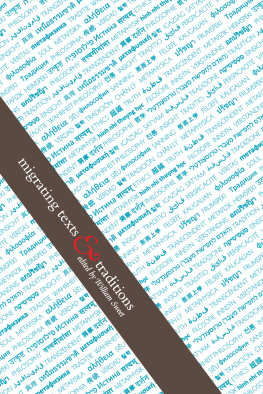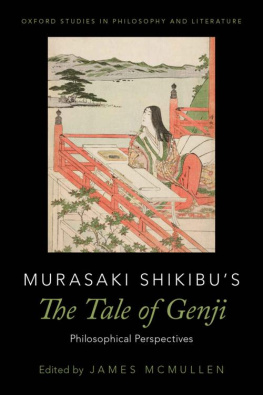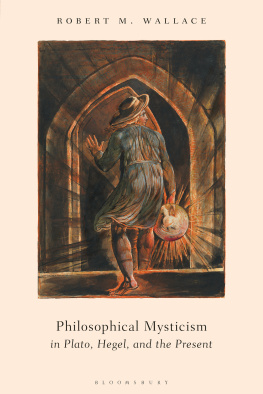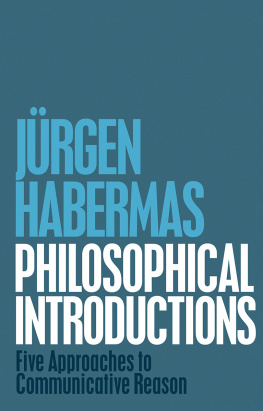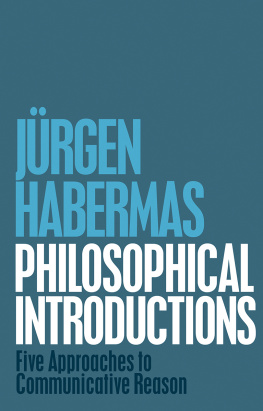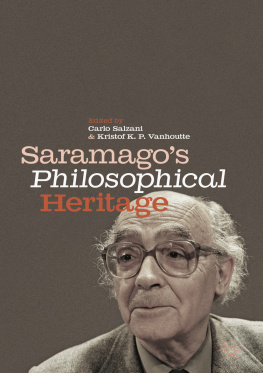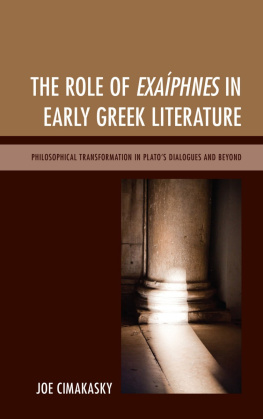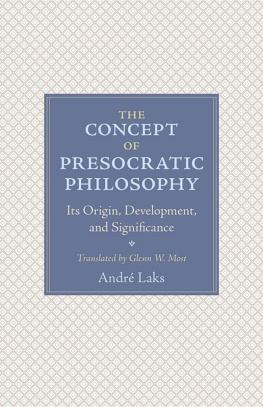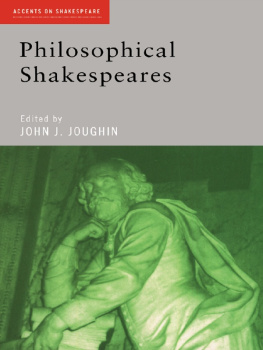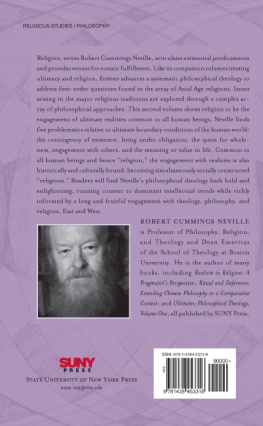Logoi and Muthoi
SUNY series in Ancient Greek Philosophy
Anthony Preus, editor
Logoi and Muthoi
Further Essays in
Greek Philosophy and Literature
Edited by
William Wians
Cover photograph [detail] 2018 Museum of Fine Arts, Boston. Two-handled jar (amphora) with Achilles and Ajax . About 525520 B.C. Place of Manufacture: Athens, Attica, Greece. By: the Andokides Painter; by: the Lysippides Painter. Ceramic, Black Figure and Red Figure (Bilingual). Henry Lillie Pierce Fund 01.8037.
Published by State University of New York Press, Albany
2019 State University of New York
All rights reserved
Printed in the United States of America
No part of this book may be used or reproduced in any manner whatsoever without written permission. No part of this book may be stored in a retrieval system or transmitted in any form or by any means including electronic, electrostatic, magnetic tape, mechanical, photocopying, recording, or otherwise without the prior permission in writing of the publisher.
For information, contact State University of New York Press, Albany, NY
www.sunypress.edu
Library of Congress Cataloging-in-Publication Data
Names: Wians, William Robert, editor.
Title: Logoi and muthoi : further essays in Greek philosophy and literature / edited by William Wians.
Description: Albany : State University of New York, 2019. | Series: SUNY series in ancient Greek philosophy | Includes bibliographical references and index.
Identifiers: LCCN 2018035998 | ISBN 9781438474892 (hardcover : alk. paper) | ISBN 9781438474908 (ebook)
Subjects: LCSH: Philosophy, Ancient. | LiteraturePhilosophy. | Greek literatureHistory and criticism. | Mythology, Greek.
Classification: LCC B178 .L639 2019 | DDC 180dc23
LC record available at https://lccn.loc.gov/2018035998
10 9 8 7 6 5 4 3 2 1
Contents
William Wians
Kevin Robb
William Wians
Luc Brisson
Robert Hahn
Lawrence J. Hatab
Marina Marren
Ruby Blondell
Roslyn Weiss
Marina McCoy
Pierre Destre
Marjolein Oele
A. A. Long
Illustrations
Acknowledgments
As with the first volume Logos and Muthos , published by SUNY Press in 2009, completing Logoi and Muthoi has required the combined work of many parties. My first thanks go to my contributors, who have been unfailingly cooperative and patient. I am happy to thank Merrimack College for its support in the form of summer research grants that helped to advance the project, and Boston College, where I was able to teach a seminar on the themes of this volume. Finally, I want to thank Tony Preus, the series editor, and Andrew Kenyon, my editor at SUNY Press (with an able assist from Michael Rinella, my former editor). Once again, it has been a pleasure to work with the entire SUNY Press staff.
About the Cover
The cover image for this volume shows the second side of the vase from which the first volume also took its image (Museum of Fine Arts, Boston 01.8037). The vase is a type that is called bilingual, meaning it uses black figure technique on one side and red figure on the other. The black figure side was used in 2009. As I wrote then, The image of the warriors Ajax and Achilles seemingly at their ease playing dice was a popular subject for vase painters. But as Emily Vermuele suggests in her classic study, Aspects of Death in Early Greek Art and Poetry (Berkeley and Los Angeles: University of California Press, 1979, 8082), the simple game of chance is a metaphor for the risks of mortal life. In fact, neither warrior would return from the war at Troy. Nevertheless, a measure of immortality is won for the heroes through the kleos preserved by the work of the artist. The vase is a powerful reminder to the modern viewer of both the persistence of muthoi in Greek culture and the subtlety with which they can convey their lesson.
From Logos and Muthos to
W ILLIAM W IANS
Logoi and Muthoi: Further Philosophical Essays in Greek Literature is a second volume of essays devoted to exploring philosophical themes in Greek literature. The first volume, Logos and Muthos: Philosophical Essays in Greek Literature , accomplished more (I hope) than to make the present title more or less inevitable. Its aim was to build on the now well-established recognition that the term pair logos / muthos is not equivalent to once common oppositions such as reason vs. myth or rational vs. irrational, while providing compelling alternatives to what once was called the Greek Miracle and the old oppositions narrative of progress from benighted credulity to at least the dawning of some form of critical enlightenment.
Given that Logoi and Muthoi has the same goal as the first volume, it is worth repeating the more expansive statement of purpose from the first volumes introduction:
The title conveys the collections two main intentions. First, not from muthos to logos , but logos and muthos , implying a whole range interactions, reactions, tensions and ambiguities arising between different forms of discourse. Scholarship in recent years has moved decisively beyond old assumptions of a simple progression from myth to reason, and the collection takes full advantage of that work. But the full emphasis of Logos and Muthos becomes apparent in the subtitle. All of the volumes chapters explore philosophical dimensions of literary authorsHomer, Hesiod and the Archaic poets, the tragic playwrights figures and works not usually central to histories of ancient philosophy.
The purpose of the collection is not, then, to mount another challenge to the old opposition, or to search for the beginnings of philosophy, or to seek anything like a comprehensive definition of myth. Rather, it intends to consider philosophical issues and ideas as they arise from or can be applied to literary, usually poetic, texts, to muthoi in one sense of the Protean term.
The present volume has the same aim: to consider philosophical themes and ideas in works not ordinarily included in the canon of Greek philosophical texts, both to shed light on canonical philosophical authors and also for their own sake. In this case, twelve essays are written by an entirely new list of contributors (the only exception being the editors contribution). Each contributor explores in some way what various and competing muthoi and logoi meant for those whose thought they shaped and who in turn shaped them and what they mean to usthe implications of a chosen form of writing, how influence and reception reached across what we mark as different genres, and what answers to these questions reveal about the nature of the ancient intellectual enterprise. Taken together, the essays offer new approaches to familiar texts and open up new possibilities for understanding the roles and relationships between muthos and logos in ancient Greek thought. A second volume is justified both by the philosophical richness of the works under consideration and by the hope that these further examples of philosophical scrutiny of texts and issues falling outside philosophys traditional purview will contribute in a meaningful way to the growing body of work that crosses current disciplinary boundaries in order to explore such connections. Which is another way to put the purpose of both volumes: to reinforce, at least implicitly, the recognition that current disciplinary boundaries are our own, and that much fruitful work remains to be done by crossing them.
Story vs. Argument

